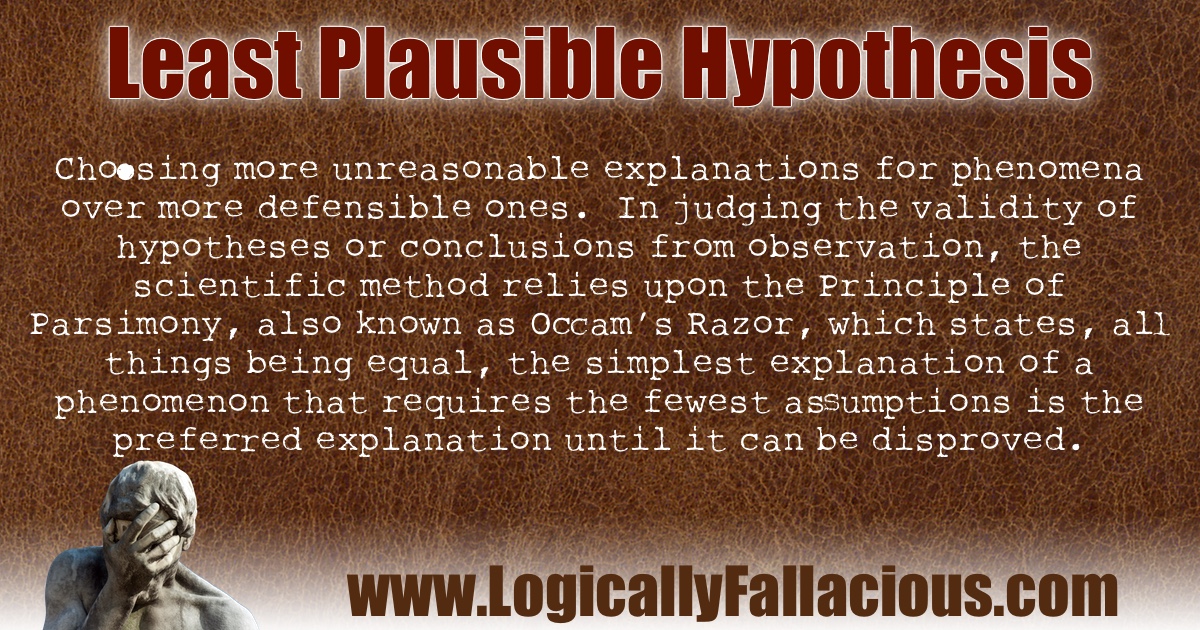Description: Choosing more unreasonable explanations for phenomena over more defensible ones. In judging the validity of hypotheses or conclusions from observation, the scientific method relies upon the Principle of Parsimony, also known as Occam’s Razor, which states, all things being equal, the simplest explanation of a phenomenon that requires the fewest assumptions is the preferred explanation until it can be disproved.
This is very similar to the far-fetched hypothesis, but the hypotheses are generally more within reason (i.e., no leprechauns involved).
Logical Form:
Hypothesis X is used to explain Y, but hypothesis X is the least plausible.
Example #1:
Here is why I think my date never showed up: her father had a heart-attack, and she had to rush him to the hospital. In her state of panic, she forgot her cell phone and while at the hospital she was too concerned about her dad to worry about standing me up.
Explanation: While possible, it is not probable. It is much more probable that his date just forgot or has purposely stood him up. People tend to believe in the least probable hypotheses out of desire, emotion, or faith -- not out of reason.
Example #2: Creationists have written volumes of books explaining how, given some divine intervention, a few broken natural laws, and accepting the inconsistency of nature, it could be possible that the universe is only 6000 years old. Accepting these theories would require the abandonment or radical reformation of virtually every science we have, as well us a new understanding of the term, “fact”. So either all of that is true, or, the Biblical creation story, like hundreds of others in cultures all around the world, are simply mythology.
Explanation: Given the incomprehensible number and severity of the assumptions that would need to be made for creationism to be true, the explanation that the creation story is mythology, by far, is the most economical explanation.
Exception: This isn't about what might be possible; Occam’s Razor is all about probabilities.
Fun Fact: “Plausibility” technically means “believability,” which is highly subjective. A Flat-earther would find the flat-earth theory more plausible than the spherical earth. Clearly, who is making the claim of plausibility, matters.
